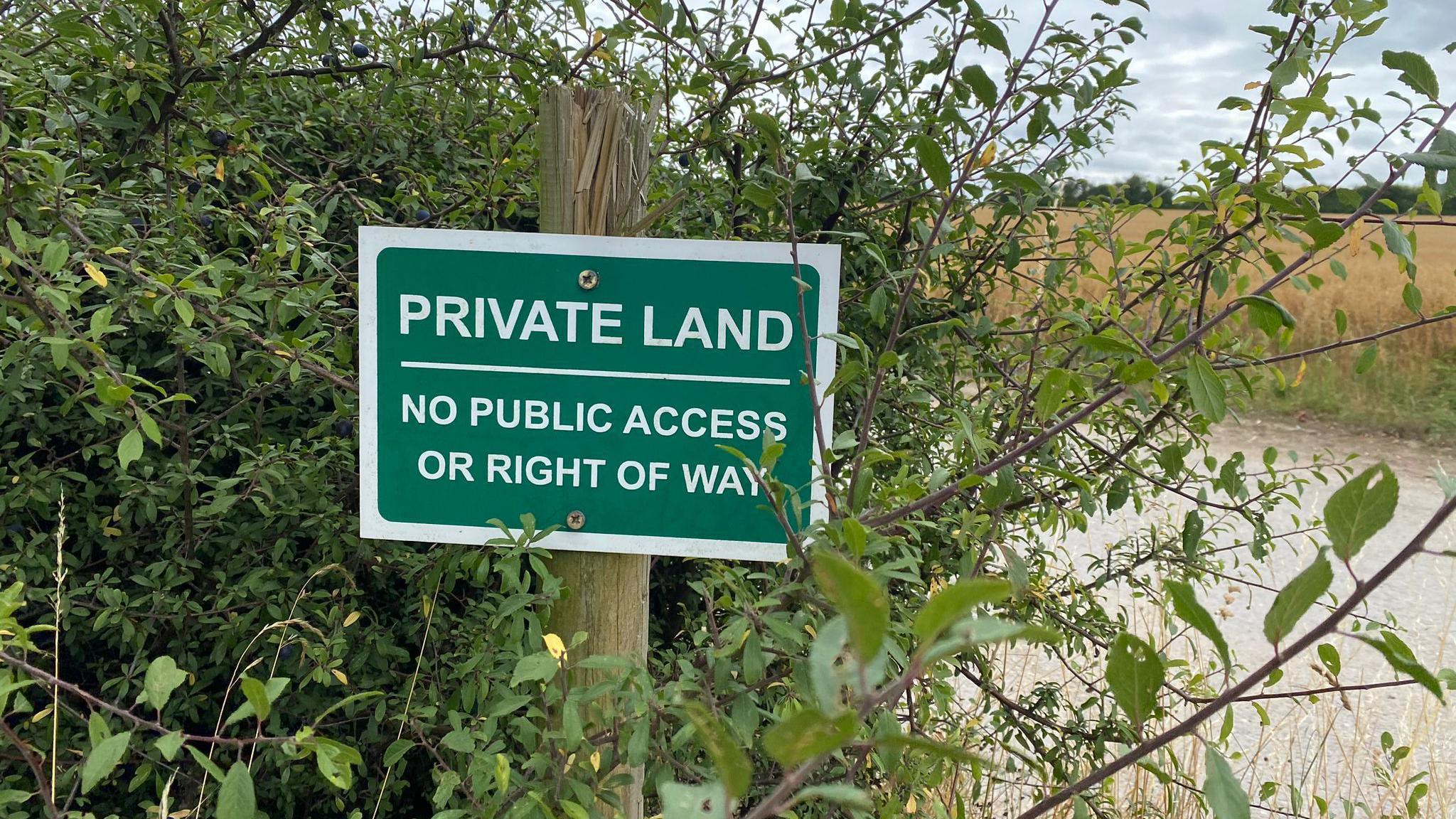'There will be many footpaths simply lost'

Countryside campaigners are concerned that some footpaths may be lost
- Published
Thousands of miles of footpaths could be lost due to a massive backlog in local councils dealing with applications, campaigners say.
The government has set a deadline of 2031 for all rights of way in England to be added to an official map.
But data gathered by the BBC suggests nearly 8,000 requests to get public paths and bridleways added to the map have not been processed – and some date back to the 1980s.
The government said processing applications was the responsibility of local authorities.
Saving footpaths

Walking charity volunteer Paul Howland has logged more than 100 applications
All historic rights of way must be recorded by 2031, according to rules set out in the Countryside and Rights of Way Act 2000.
But countryside campaigners are concerned the paperwork-heavy process is so slow that some paths may never be recorded.
Paul Howland, a volunteer with walking charity the Ramblers in Hampshire, has lodged more than 100 applications with his local authority, requesting specific paths be added to the official map.
“What we’re doing is recovering old paths that have often been in place for centuries," he said.
"Once [a route is] determined it'll be there forever, for my children and grandchildren and for future generations, and that makes it all worthwhile."
Councils face huge backlog of applications to get historic footpaths formally recognised.
Jack Cornish, head of paths at the Ramblers, said the government should scrap the 2031 deadline altogether.
Commenting on the backlog, he said: "I'm not massively surprised by the figure, but it is shocking.
“We’ve got tens of thousands of miles of public rights of way that are not recorded or protected across England and Wales.
"If we have a deadline then there will be many paths that are simply lost."
Growing backlog
Research by the BBC found that, as of March this year, nearly 8,000 requests for rights of way to be added to the official map were still waiting to be determined by councils in England and Wales.
The data came from Freedom of Information requests to councils and national park authorities, along with details from applications published on council websites.
An application to change official maps is known as a definitive map modification order (DMMO).
Lincolnshire County Council had the most pending DMMO applications at 458, while the oldest applications date back to the 1980s.
From 2019 to 2024, councils processed fewer than one in three DMMO applications.
There were 4,308 DMMO applications during this period, yet only 1,156 of these were successfully determined, according to figures from 144 out of 156 public bodies.
During the pandemic peak of 2021, councils received five times more applications than were determined that year.
'Huge uncertainty'
Some farmers and landowners say they prefer the earlier deadline, as they need to know what accommodations they have to make for public rights of way.
Claire Wright, national access advisor at the Country Land and Business Association, said: “It's that huge amount of uncertainty - whether the claimed path might go through a really valuable crop or make cultivation much more complicated."
She said farmers and landowners had to consider, "am I going to have to change the way that I'm doing things to fit in the path, or will I then have to go through another really expensive process to divert that route?".
Andrew Fletcher, Lincolnshire County Council's public rights of way and access manager, said: “What you have to realise is that we're dealing with rights over someone else’s land and that isn't something that one should really take lightly.
"Once a right of way is recognised it's there in perpetuity, and it can really fetter someone's ability to deal with their land.
“We're actively recruiting more officers to get through [the applications.]”
A Local Government Association spokesperson said: “These are important decisions that have long lasting impacts on councils, landlords and the public right of way. There’s a process to go through approval of DMMOs, including proper investigations and appeals if necessary.
“Councils will do the best they can to meet the regulations and deadline of 2031, but competing pressures will continue to impact on councils’ abilities to deal with the backlog and process applications as swiftly as they’d like.”
A spokesperson for Defra said processing DMMOs was the responsibility of local authorities.
They added the Rights of Way Reform Programme would help make the process of resolving historic rights of way applications faster and cheaper.
Additional reporting by Jonathan Fagg